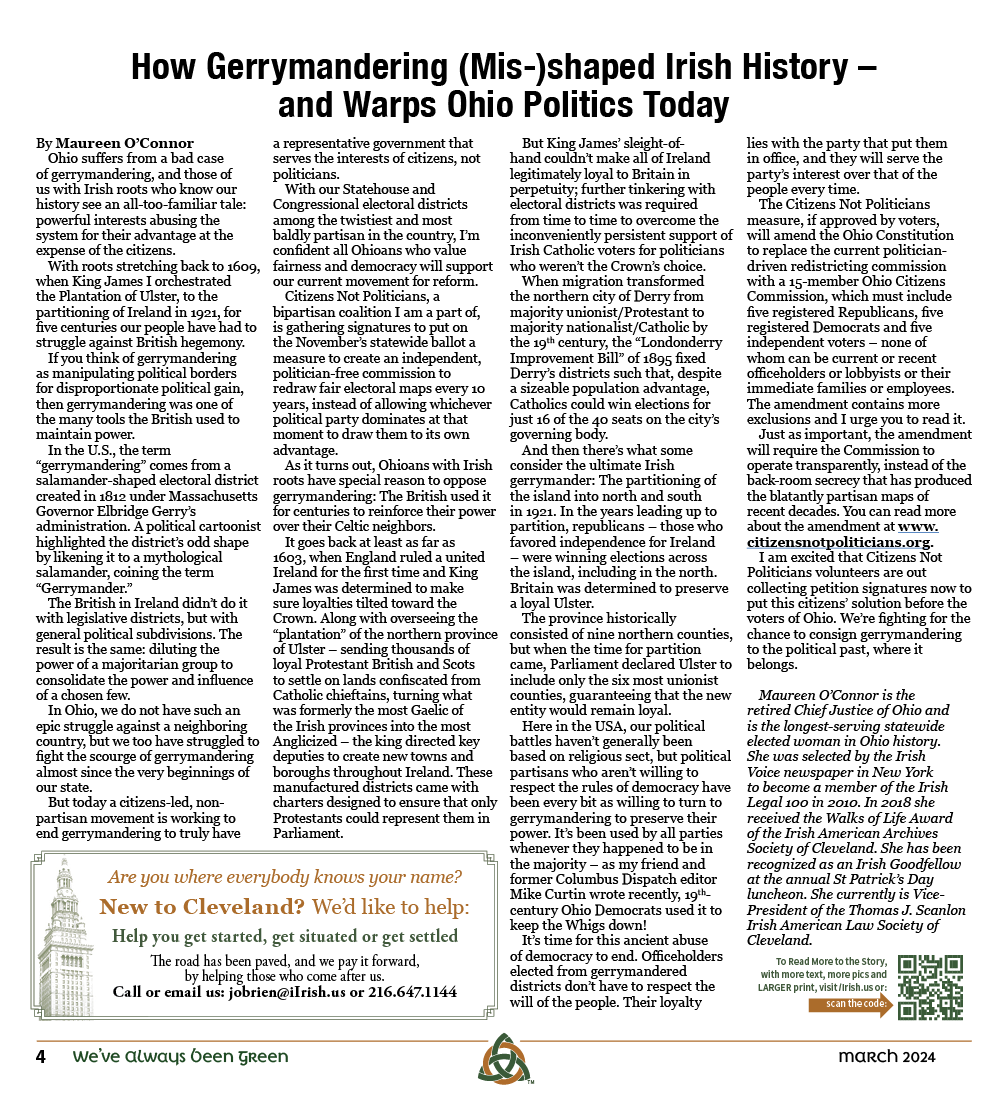Edited by John O’Brien
Mayor Justin Bibb joined volunteers
in downtown Cleveland on Tuesday, demonstrating his support for the Citizens Not Politicians Amendment aimed at ending gerrymandering in Ohio. Gathering at Old Stone Church at 91 Public Square, the mayor emphasized the importance of fair and impartial legislative districts before casting his vote in the primary election.
“Today, voters across Ohio are once again voting on legislative contests in gerrymandered districts,” Mayor Bibb said. “It is great to see so many Clevelanders standing up for democracy by supporting the Citizens Not Politicians Amendment. We are taking a stand for democracy and ensuring that every voice is heard fairly in our electoral process.”
As voters headed to the primary polls, hundreds of volunteers at polling locations across Ohio rallied to collect signatures needed to place the amendment on the November ballot. Too gather over 413,000 valid signatures by July 3, the initiative seeks to establish a nonpartisan redistricting process led by citizens.
“Gerrymandering has plagued our state for too long, creating a system where politicians manipulate boundaries to serve their interests,” Mayor Bibb continued. “It’s time for Ohio citizens – not politicians – to take control and draw fair, unbiased maps through an open and transparent process.”
The Citizens Not Politicians Amendment proposes the creation of a 15-member Ohio Citizens Redistricting Commission (OCRC), composed of Republican, Independent, and Democratic voters, and excludes current or recent political officeholders and lobbyists from map drawing.
Ohio is one of the most gerrymandered states in the country.
The Citizens Not Politicians Amendment will:
- Create the 15-member Ohio Citizens Redistricting Commission made up of Republican, Democratic, and independent citizens who broadly represent the different geographic areas and demographics of the state.
- Ban current or former politicians, political party officials, and lobbyists from sitting on the commission.
- Require fair and impartial districts by making it unconstitutional to draw voting districts that discriminate against or favor any political party or individual politician.
- Require the commission to operate under an open and independent process.





